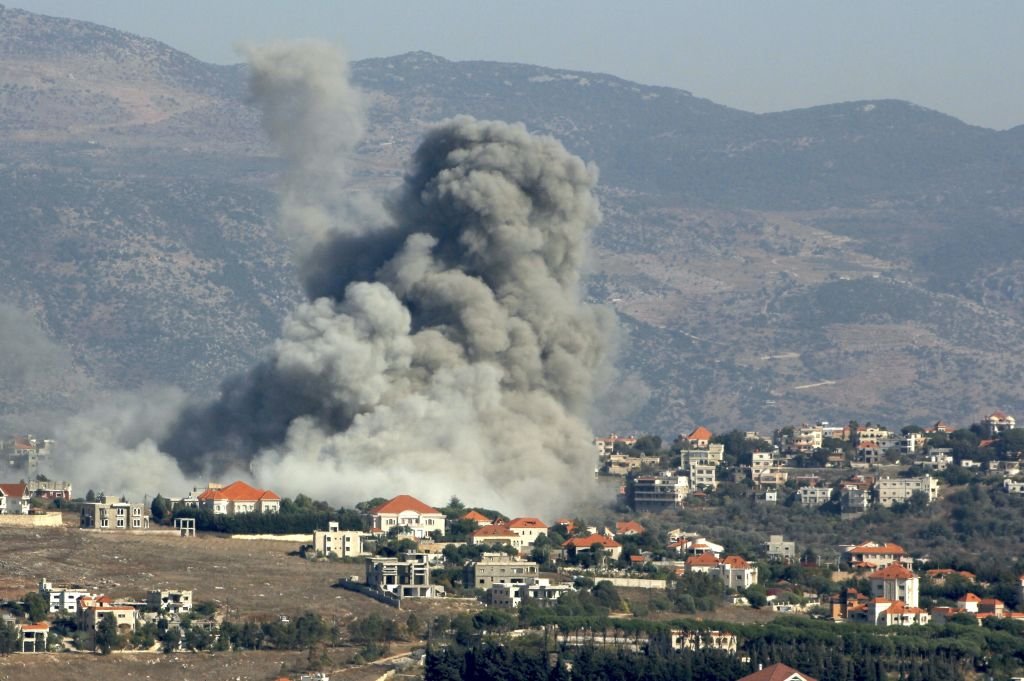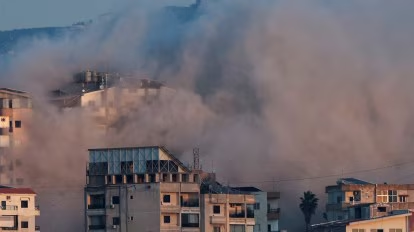| In Short |
| Israel rejected Lebanon’s ceasefire proposal, citing security concerns over Hezbollah’s activities |
| The decision was influenced by hardliners in the Israeli government who oppose negotiating with Hezbollah. |
| Lebanon’s government sought the ceasefire to prevent further conflict amid its ongoing crises. |
| International organizations and countries have called for de-escalation and a peaceful resolution. |
| The rejection of the ceasefire proposal raises concerns about the potential for further violence in the region. |
The latest news that has made it to the headlines is that Israel has turned down a Lebanon-proposed ceasefire due to security grounds and questions of insincerity on the part of Hezbollah regarding its intentions.
This rejection of the proposal of the ceasefire represents another rise in tension between Israel and Lebanon, specifically through the militant group Hezbollah. The international community has taken much interest in these developments, dreading another serious outbreak into conflict within the region.
Background: Why Is There a Conflict Between Israel and Hezbollah?
The Israel-Hezbollah conflict, a militant organization operating from Lebanon, is an intricate and long history, going back to the 1980s. The conflict breaks out in flames now and then and has flared up numerous times over the last ten years with spotty fighting across the border between Israel and Lebanon.

Hezbollah is a terrorist organization according to Israel and also other countries such as the United States; however it’s an influential political force in Lebanon and a resistance to what Hezbollah regards as Israeli aggression. In the course of several years, there have been different casualty and damages on both sides due to fights between Israeli troops and Hezbollah. The relations are brittle often flaring into volcanic situations between these two entities.
Case Study: What Happened When Israel Rejected the Ceasefire Proposal?
The Lebanese government suggested the idea of a ceasefire as a way to de-escalate the situation along its borders so that the area would not witness further violence and instability. However, the Israeli government reacted quickly to this proposal by rejecting it. This was acted out by hardliners in the Israeli government who stated that Hezbollah was a significant security threat and that a ceasefire will only show Israel to be weak.

Netanyahu stressed that Israel would only accept a truce if Hezbollah ceased its aggressive activities and fully and completely disarmed. As a matter of fact, he said, “Hezbollah is demonstrating by word and deed that they will continue to act to escalate the situation. .. That makes it hard for Israel to take Lebanon at its word on a truce”.
The rejection of the bid for a cease-fire further justifies Israel’s uncompromising stance on the preservation of its security and sovereignty, especially in addressing groups that Israel considers as terrorist groups.
Impact on the Actions of the Hardliners
Another reason for the Israeli hesitation to approve of the ceasefire proposal is the threats put forward by the hard-line politicians within the government. The hawks have argued that compromise with Hezbollah or accepting anything resembling a ceasefire would strengthen the militants’ bargaining power and may even spark aggressive attacks.
Some of Israel’s topmost officials do not consider negotiation as an option; instead, they say that it would be considered a form of legitimation for the conduct of Hezbollah. They have also viewed Hezbollah as an opportunity to reorganize and recharge, therefore posing as a threat to Israel in the future.
This hard position has significantly impacted Israeli officialdom’s position regarding the adoption of the moot truce, for which it has flatly refused.
Lebanon’s Position: Tiptoeing through a Quagmire
The country of Lebanon has faced so many problems – political instability, an economic crisis, and the port explosion in Beirut in 2020. The cease-fire proposition by the Lebanese government would have eased some parts of the region, ensuring there’s no more violence that could worsen the already precarious situation.
Hezbollah has been a political component of Lebanon since the early days, but always refused to heed the regional government’s demands and continued to clash with Israel. It would sometimes act on its own instead of waiting for orders from the local government. This has placed Lebanon between the hammer and anvil, seeking to emerge victorious on its internal issues, which goes on to react to the threat of possible conflict with Israel.
The call by the Lebanese government for a ceasefire reflects a desire to avoid further escalation and to help protect its citizens against the devastating fallout of renewed conflict.
Role of Hezbollah in Escalating Tensions
Of course, Hezbollah also found its role in the conflict situation, with its activities being one of the major contributors to the rise and escalation of tensions between Israel and Lebanon. It is known that the group has, on several occasions, mounted rocket attacks and launched cross-border raids that have naturally drawn very strong responses from the Israeli side.
The leader of the group, Hassan Nasrallah, has had plenty of opportunities to state that Hezbollah stands ready to face Israel and will not back down even if attacked by Israelis. In combination with the actions taken by the group, the words raised the fears of escalations.
Though Hezbollah’s actions are framed as anti-Israel operations, they have also been a source of insecurity and instability in the lives of Lebanese nationals. A conflict associated with Hezbollah cannot easily be ended by the government of Lebanon through negotiations over a binding ceasefire acceptable to all parties.
Global Reaction: Calls for Denuclearization
The international community, many whose countries are calling for restraint, is very concerned that both sides should enter into dialogue. Since the rejection of the ceasefire proposal by Hamas, statements came from both the United Nations and the European Union regarding their concern over building tensions and the need for a peaceful resolution.
The United States, a key ally of Israel and already onboard its right to self-defend, reiterated that while calling for de-escalation and the seeking of diplomatic solutions. The regional countries, in turn, are urging for calm, focusing on the probable devastating consequences of further escalation to the entire region.
What does this say for the future?
That the Israel-Hezbollah conflict has hardly started can be discerned from the flat refusal to accept the ceasefire proposal. The standoff, whereby neither party would budge, presaged a very high likelihood of increased violence. Such high-stakes violence can, in turn, raise grave implications for regional stability because a wider conflict may spread to other countries.
This will pose a particular challenge for Lebanon since the country has yet to sort out its internal issues, and Hezbollah’s further involvement in direct confrontations with Israel puts the country at an outcry on fully influencing Hezbollah’s actions or intentions, thus it cannot be able to negotiate a mutual ceasefire.
For Israel, securing itself and preventing the threat from Hezbollah will remain a focus. However, the fact that the proposition was rejected does pose the question about how this is going to be resolved peacefully since there is still tension and because both parties have hardline positions.
Tense standoff and no end in sight
The rejection of the Lebanon ceasefire proposal by Israel underlines the complexity and volatility of the conflict with Hezbollah, yet holding lines on both sides portends an even more grave prospect of further escalation glaring in the face and profoundly threatening stability in the region.
Underlying the international community’s calls for dialogue and de-escalation is a growing sense of urgency: that a peaceful resolution must be found. But any such resolution would require that both Israel and Hezbollah take strong ground-always a proposition unlikely to come to pass in the near term, in which mistrust and hostility are powerful planks of political strategy.
For Latest News Updates Click Here
